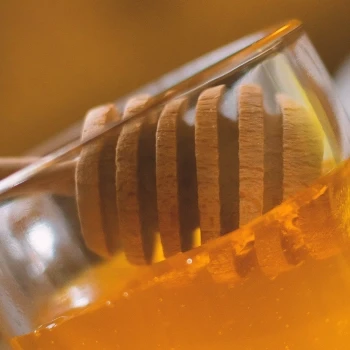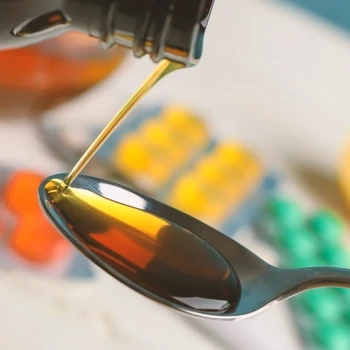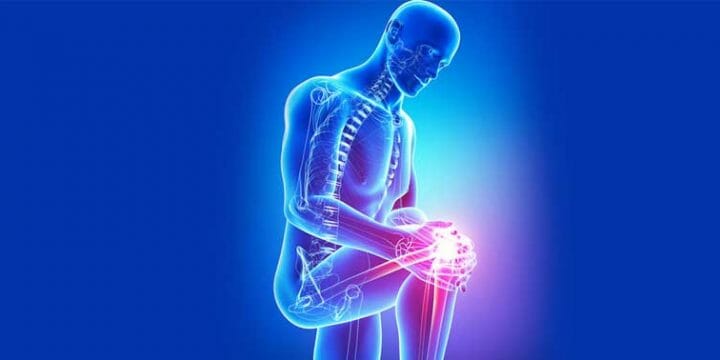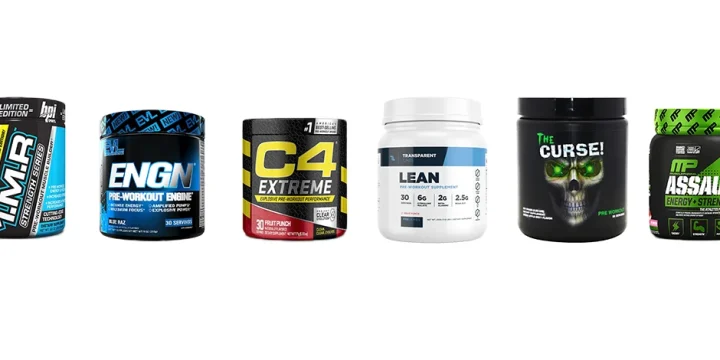As a dedicated gym goer, I love to add a little sweetness to all my protein shakes before hitting the gym.
Over the past few gym years, I've solely used honey as a protein shake natural sugar sweetener, not knowing that honey by itself is a good pre-workout alternative.
Having researched this topic for months now, I'll share my findings on the nutritional value and benefits of honey as a pre-workout and give you tips on how to consume honey for the best gym results.
Quick Summary
- Incorporating honey into pre-workout routines can enhance energy levels and muscle recovery due to its natural carbohydrate content and low glycemic index.
- Honey's composition of 80% carbohydrates, including fructose and glucose, provides a sustained energy source that is essential for fueling the body during exercise.
- A study by the National Center of Biotechnological Information (NCBI) suggests that carbohydrates from honey may increase exercise capacity by preserving endogenous energy reserves.
- From my personal gym experience, adding honey to pre-workout shakes has not only sweetened the taste but also seemed to offer a steadier energy release, making it a staple in my fitness regimen.
Nutritional Value of Honey

Eighty percent of honey's composition is made up of carbohydrates.
Carbohydrate intake is essential to fuel the body during exercise. According to National Institute of Health (NIH), honey also has small amounts of vitamins, organic acids, minerals, and enzymes [1].
From my own training, I've felt the boost that the natural sugars in honey can give. It's not just theory; it's a sweet burst of energy that's powered me through many workouts, from the first lift to the last stretch.
NIH also notes that because most of the carbohydrates in honey are made up of straight glucose and fructose, it has a low glycemic index [2].
Benefits of Honey as a Preworkout
Honey, a natural alternative to unhealthy table sugar, comes with these benefits:
1. Boost Long and Short Exercise Performance
Consuming honey right before and during exercise can support fitness performance for long-duration intense workout events and intermittent exertion typical of team sports.
As per a 2016 study by the National Center of Biotechnological Information (NCBI), eating carbohydrates from honey may increase exercise capacity by preserving endogenous fuel/energy reserves like liver and muscle glycogen and blood glucose levels [3].
The National Library of Medicine notes that honey has carbohydrates that can help to skyrocket short-term (i.e., workouts lasting under 60 minutes) exercise endurance when ingested pre-workout [4].
2. Honey Balances Blood Glucose Concentration

Weight lifters and cardio fans need pre-workouts to keep blood glucose levels stable, crucial for brain function.
NIH research indicates cerebral glucose uptake slows when blood glucose falls below 3.6 mmol/L, a common issue in mid-intense workout [5].
Additionally, a study by the National Library of Medicine shows that enhanced activities with elevated glycemia after intense exercise underline the relationship between blood glucose levels and cognitive ability [6].
“Make sure that honey is always raw and not pasteurized because pasteurization means they cook it and destroy everything, so you’re just getting pure sugar.”
- Dr. Eric Berg DC, YouTube Channel
Nutritional strategies that sustain or elevate blood glucose, particularly during late HIIT stages, are beneficial. Honey, with its low GI fructose, is a recommended choice for this, as per a 2020 ResearchGate study [7].
3. Good for Rehydrating Mid-Workout

In my own grueling marathon training, I've found that sipping on water with a spoonful of honey keeps me hydrated and wards off fatigue better than any sports drink I've tried.
I recommend you add a spoonful of honey to your portable water bottle along with some water and drink at certain intervals depending on your workout schedule.
4. Muscle Recovery
Honey helps muscles absorb glucose during post-workout recovery, replenishing glycogen stores.
A study from Computational Intelligence and Neuroscience shows that with regular exercise, muscles increase glucose reserves in recovery, preparing for future endurance sessions and aiding muscle building [8].
Adequate glucose is essential for healing; its deficiency can weaken muscles and lead to hypoglycemia. Incorporating regular endurance exercises into your routine, with increasing intensity and duration, is key to enhancing workouts and muscle growth.
Raw vs Processed Honey
Raw honey is minimally processed, retaining more nutrients and enzymes than processed honey. It contains antioxidants and offers potential benefits as a pre-workout supplement, providing quick energy from natural sugars.
Processed honey may lose some of these beneficial compounds during heating and filtering.
Therefore, raw honey is generally considered a better choice for athletes as it offers more nutritional value and can be a more effective pre-workout supplement due to its richer content of enzymes, antioxidants, and potential health benefits.
4 Ways to Take Honey as a Pre-workout

As opposed to licking this sweet stuff, here are other exciting ways to take honey as a pre-workout.
- Homemade Energy Drink: Add water, a teaspoon of raw honey, and a pinch of salt to your water bottle. Shake well and drink to tap into an instant carbohydrate recovery and stay energized throughout your workout routines.
- Honey Toast: Toast gives you more carbohydrates before you hit the gym. To spice up the meal, put some honey on bread and top it with nuts or seeds. You can add some avocado and strawberry slices too.
- Honey-Lemon Shots: Mix one lemon juice, one tablespoon apple cider vinegar, one teaspoon honey, half a teaspoon of ginger, and a dash of cayenne pepper. Take these shots to refuel your body.
- Honey Bars: You can prepare a nutrition bar for yourself using honey and nuts and eat pre or post-workout. Toast your nuts and roughly chop them. Put in a freezer-safe container and drizzle a generous amount of honey. Freeze it and enjoy.
FAQs
How Long Before a Workout Should I Eat Honey?
You should eat honey 10-20 minutes before a workout.
When Should I Drink Honey Before or After a Workout?
You can drink honey either before or after a workout. Honey is a good carbohydrate source to energize you for your exercise, and it's also good to heal your torn muscle tissues after training.
Why Do Bodybuilders Eat Honey?
Bodybuilders eat honey because it has good carbohydrates that give them the energy to lift heavy weights for maximum muscle growth.
Is Honey Good For Weightlifters?
Yes, honey is good for weightlifters because of its energy and muscle healing properties.
Is Cinnamon and Honey Good for Weight Loss?
Cinnamon and honey are good for weight loss, bearing in mind the chemical compounds in these two ingredients. Drinking the combination of honey and cinnamon triggers some metabolic processes that promote weight loss. This combination also prevents heart conditions, lowers blood pressure levels, and helps control insulin levels.
Honey as a Natural Pre-workout
Natural honey is a good pre-workout and has excellent health benefits. You can take honey as a pre or post-workout snack.
But eating honey as a standalone cannot give you the all-around sports nutrition that these nutrient-packed supplements can:
Adding a little honey as an extra ingredient to these pre-workout meals would be best for a maximum energy boost.
References:
- https://www.ncbi.nlm.nih.gov/pmc/articles/PMC6218329/
- https://www.ncbi.nlm.nih.gov/pmc/articles/PMC6683082/
- https://pubmed.ncbi.nlm.nih.gov/26855422/
- https://pubmed.ncbi.nlm.nih.gov/24791914/
- https://pubmed.ncbi.nlm.nih.gov/23702257/
- https://www.ncbi.nlm.nih.gov/pmc/articles/PMC4594138/
- https://www.researchgate.net/publication/339580536
- https://www.hindawi.com/journals/cin/2022/6953568/
About The Author
You May Also Like






